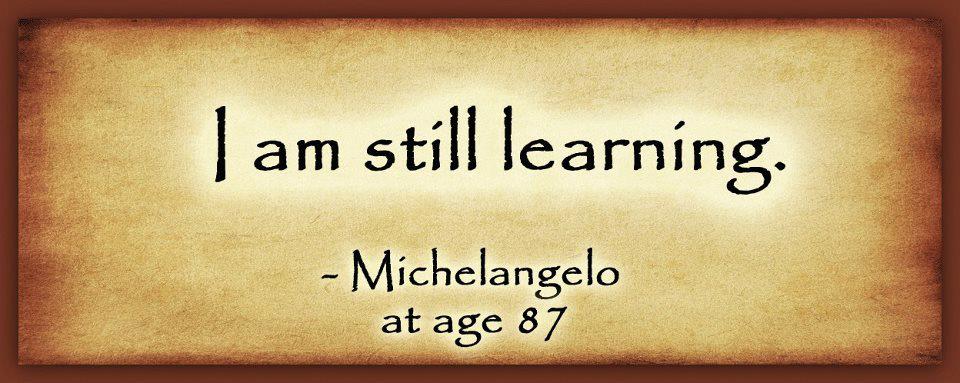When trying to manage stress, Blonna said that many people mistakenly
look for a Band-Aid approach. They look for one approach to work with
all stressors in all situations at all times. But realistically you
can’t rely on one technique. For instance, diaphragmatic breathing is an
effective stress reliever but you might not want to use it in a certain
situation because you’re feeling self-conscious and don’t want to bring
attention to yourself, he said. Similarly, while Blonna is a big
believer in meditation, he said it doesn’t work if you’re stuck in
traffic, since it’s dangerous to close your eyes.
Instead, “What we need is a toolbox that’s full of techniques that we can fit and choose for the stressor in the present moment,” he said. Stress is complex, so your approach to coping with it has to be “broad-based and adaptive,” he said. Years ago, he developed five levels of strategies for coping with stress or the “five Rs of coping model.” Each level has multiple strategies.
1. Reorganize.
As a health educator, Blonna knows the importance of a healthy lifestyle, especially for stress management. He said that “reorganizing your health” and “develop[ing] hearty habits” provides more energy and builds coping resilience. For instance, exercise not only improves physical functioning but it also helps your brain work better and process information better, he said.
In fact, maybe you “won’t even get stressed in the first place.” Blonna aims to get at least 30 minutes of cardio four to five times a week. As he said, physical wellbeing isn’t “merely your health insurance, but [your] basic defense against stress.”
2. Rethink.
What your mind tells you “about a potential stressor determines whether it becomes an actual stressor,” Blonna said. He gave the example of a student who’s terrified of failing a final exam. He keeps focusing on how he isn’t smart and will do poorly, instead of focusing on the things that will help him do well on the exam, such as meeting with the professor, scheduling a study session with others and studying for the final. The goal is to get over your negative thinking and accept that while you may not be an expert in a certain subject, like in this case, you can still try your best and do what you can to learn the material.
Our scripts from the past also can turn potential stressors actual ones. They can stunt growth in the very areas that we value. From the perspective of acceptance and commitment therapy (ACT), Blonna said, we carry mental and emotional baggage about past events and experiences. When similar experiences come up, these old scripts lead to negative self-talk. Take the idea of a new relationship, he said. This can be a potential stressor if other relationships didn’t go well. While you’re very interested in this person and you value relationships, old images of past failed relationships, self-doubt and negative scripts keep coming up.
If we let these things become barriers to moving forward, then “we aren’t living lives with what we value,” he said. He likens this baggage to carrying around a duffle bag. “Each of us has this duffel bag filled with negative thoughts, mental images and dialogue.” We have two options: we can “let duffle bag drag us down [or] we can just drop it or put it away.” It’s the idea of accepting that this baggage does exist—“we can’t eliminate it”—but “I don’t have to let it stop me in my tracks,” he said. Plus, once you experience a positive relationship or experience, you create a healthy frame of reference.
In general, “be aware of that baggage and how it’s affecting [your] life in the present moment; how it’s influencing your ability to enjoy life now” and to accept “the fact that that’s how [your] mind works.” But you do have the power to change those negative thoughts and push through self-doubting scripts.
Blonna gave an example from his own life when he was considering becoming an ACT trainer. He had various negative scripts running in his mind, including how he’d inevitably fail and who did he think he was to train psychotherapists with years of experience in the first place. He “almost said no.” But after a while, he decided that he’d do several training sessions. If they were “total failures,” he’d stop. The result? The training sessions went exceptionally well, and he continues to train others.
3. Reduce.
“Sometimes we’re stressed out because of the sheer volume of things we’re involved in,” Blonna said. When you’re overwhelmed, even fun things lose their appeal and become stressors. Take running, for example. If you’re rushing around and have to force running in between two other commitments, this passion may become another source of stress, he said. The key is to find optimal stimulation, so you aren’t understimulated (i.e., bored) with your activities or overstimulated (i.e., overwhelmed).
To do that, consider all the things you’re involved in. It can help to keep a journal to track your activities and your feelings about them, Blonna said. Also, he suggested asking yourself, “Do they mesh with my goals and values? Am I doing things that give my life meaning? Am I doing the right amount of things?”
Other questions that may provide you with good insight: “When you wake up in the morning, do you look forward to what’s on your plate? Are you excited to start the day? Or do you dread getting out of bed because you don’t have any energy?”
Understand that getting to this balanced place takes trial and error. Also, it takes saying no to things that aren’t that important to you. For instance, Blonna has worked with students who take on 19 credits to please their parents, but they get incredibly overwhelmed with the course load. “They can only handle 12 credits and would rather cut back and enjoy the process of learning but allow others to bully them into toughing it out yet they’re miserable,” he said.
4. Relax.
This level is “designed to put your body in a state that’s incompatible with stress,” Blonna said. Interestingly, “a lot of people are so stressed [that] they don’t know what the absence of stress or a calm mind feels like,” he said. But practicing clinically proven relaxation techniques, such as deep breathing or systematic muscle relaxation, for about 20 minutes a day can help tremendously. While you won’t always have the time to devote to these techniques on a daily basis, he said, it is important to make relaxation a priority.
5. Release.
Here, the goal is two-fold, according to Blonna: to reduce muscle tension and to “use up energy that’s mobilized during a stress response.” He divides physical activity into mild, moderate and vigorous activities. Maybe in addition to your physical activity routine, you need something more vigorous to release the tension so you lift weights or go on a brisk walk.
Instead, “What we need is a toolbox that’s full of techniques that we can fit and choose for the stressor in the present moment,” he said. Stress is complex, so your approach to coping with it has to be “broad-based and adaptive,” he said. Years ago, he developed five levels of strategies for coping with stress or the “five Rs of coping model.” Each level has multiple strategies.
1. Reorganize.
As a health educator, Blonna knows the importance of a healthy lifestyle, especially for stress management. He said that “reorganizing your health” and “develop[ing] hearty habits” provides more energy and builds coping resilience. For instance, exercise not only improves physical functioning but it also helps your brain work better and process information better, he said.
In fact, maybe you “won’t even get stressed in the first place.” Blonna aims to get at least 30 minutes of cardio four to five times a week. As he said, physical wellbeing isn’t “merely your health insurance, but [your] basic defense against stress.”
2. Rethink.
What your mind tells you “about a potential stressor determines whether it becomes an actual stressor,” Blonna said. He gave the example of a student who’s terrified of failing a final exam. He keeps focusing on how he isn’t smart and will do poorly, instead of focusing on the things that will help him do well on the exam, such as meeting with the professor, scheduling a study session with others and studying for the final. The goal is to get over your negative thinking and accept that while you may not be an expert in a certain subject, like in this case, you can still try your best and do what you can to learn the material.
Our scripts from the past also can turn potential stressors actual ones. They can stunt growth in the very areas that we value. From the perspective of acceptance and commitment therapy (ACT), Blonna said, we carry mental and emotional baggage about past events and experiences. When similar experiences come up, these old scripts lead to negative self-talk. Take the idea of a new relationship, he said. This can be a potential stressor if other relationships didn’t go well. While you’re very interested in this person and you value relationships, old images of past failed relationships, self-doubt and negative scripts keep coming up.
If we let these things become barriers to moving forward, then “we aren’t living lives with what we value,” he said. He likens this baggage to carrying around a duffle bag. “Each of us has this duffel bag filled with negative thoughts, mental images and dialogue.” We have two options: we can “let duffle bag drag us down [or] we can just drop it or put it away.” It’s the idea of accepting that this baggage does exist—“we can’t eliminate it”—but “I don’t have to let it stop me in my tracks,” he said. Plus, once you experience a positive relationship or experience, you create a healthy frame of reference.
In general, “be aware of that baggage and how it’s affecting [your] life in the present moment; how it’s influencing your ability to enjoy life now” and to accept “the fact that that’s how [your] mind works.” But you do have the power to change those negative thoughts and push through self-doubting scripts.
Blonna gave an example from his own life when he was considering becoming an ACT trainer. He had various negative scripts running in his mind, including how he’d inevitably fail and who did he think he was to train psychotherapists with years of experience in the first place. He “almost said no.” But after a while, he decided that he’d do several training sessions. If they were “total failures,” he’d stop. The result? The training sessions went exceptionally well, and he continues to train others.
3. Reduce.
“Sometimes we’re stressed out because of the sheer volume of things we’re involved in,” Blonna said. When you’re overwhelmed, even fun things lose their appeal and become stressors. Take running, for example. If you’re rushing around and have to force running in between two other commitments, this passion may become another source of stress, he said. The key is to find optimal stimulation, so you aren’t understimulated (i.e., bored) with your activities or overstimulated (i.e., overwhelmed).
To do that, consider all the things you’re involved in. It can help to keep a journal to track your activities and your feelings about them, Blonna said. Also, he suggested asking yourself, “Do they mesh with my goals and values? Am I doing things that give my life meaning? Am I doing the right amount of things?”
Other questions that may provide you with good insight: “When you wake up in the morning, do you look forward to what’s on your plate? Are you excited to start the day? Or do you dread getting out of bed because you don’t have any energy?”
Understand that getting to this balanced place takes trial and error. Also, it takes saying no to things that aren’t that important to you. For instance, Blonna has worked with students who take on 19 credits to please their parents, but they get incredibly overwhelmed with the course load. “They can only handle 12 credits and would rather cut back and enjoy the process of learning but allow others to bully them into toughing it out yet they’re miserable,” he said.
4. Relax.
This level is “designed to put your body in a state that’s incompatible with stress,” Blonna said. Interestingly, “a lot of people are so stressed [that] they don’t know what the absence of stress or a calm mind feels like,” he said. But practicing clinically proven relaxation techniques, such as deep breathing or systematic muscle relaxation, for about 20 minutes a day can help tremendously. While you won’t always have the time to devote to these techniques on a daily basis, he said, it is important to make relaxation a priority.
5. Release.
Here, the goal is two-fold, according to Blonna: to reduce muscle tension and to “use up energy that’s mobilized during a stress response.” He divides physical activity into mild, moderate and vigorous activities. Maybe in addition to your physical activity routine, you need something more vigorous to release the tension so you lift weights or go on a brisk walk.















